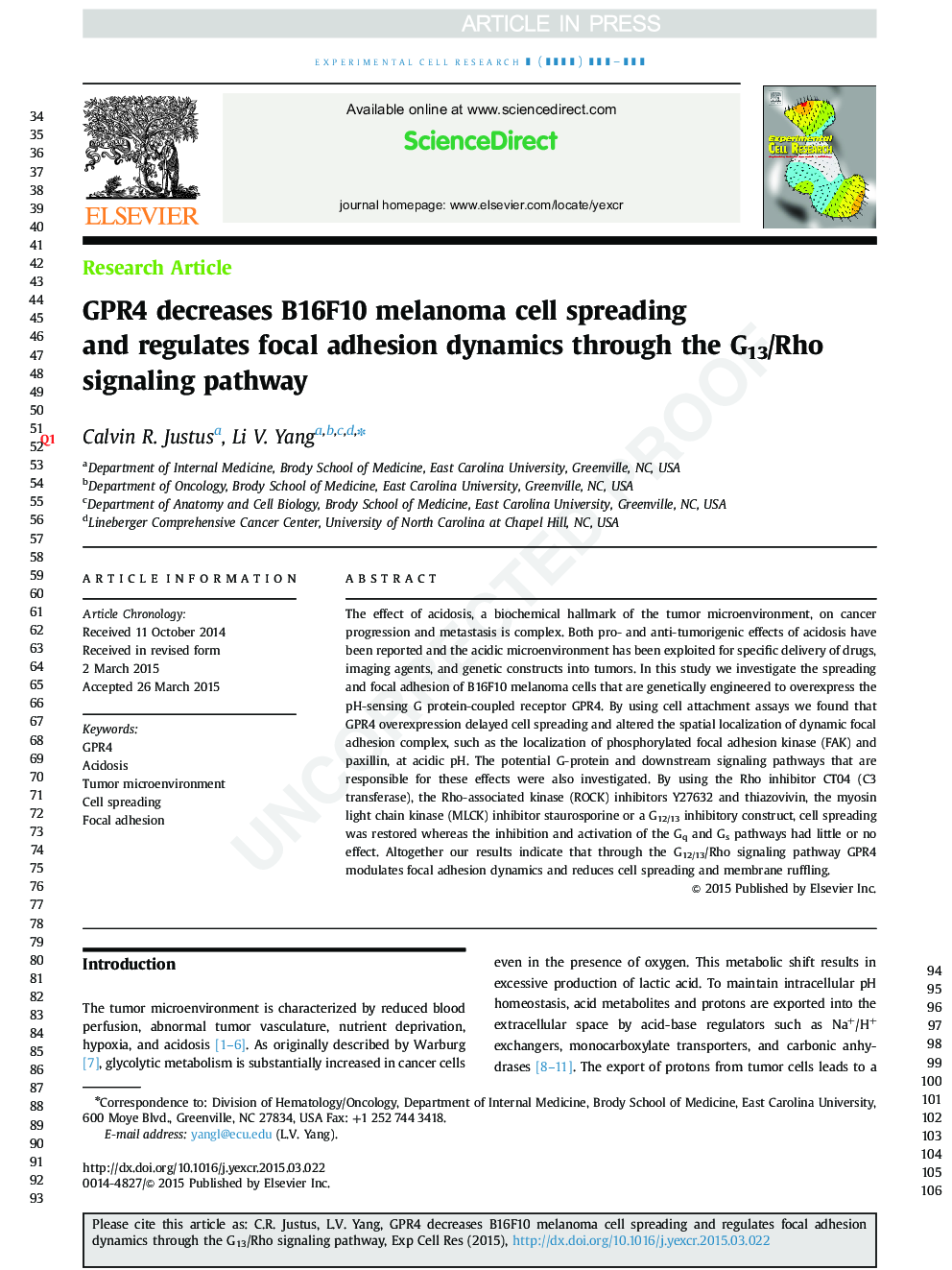| Article ID | Journal | Published Year | Pages | File Type |
|---|---|---|---|---|
| 10903903 | Experimental Cell Research | 2015 | 14 Pages |
Abstract
The effect of acidosis, a biochemical hallmark of the tumor microenvironment, on cancer progression and metastasis is complex. Both pro- and anti-tumorigenic effects of acidosis have been reported and the acidic microenvironment has been exploited for specific delivery of drugs, imaging agents, and genetic constructs into tumors. In this study we investigate the spreading and focal adhesion of B16F10 melanoma cells that are genetically engineered to overexpress the pH-sensing G protein-coupled receptor GPR4. By using cell attachment assays we found that GPR4 overexpression delayed cell spreading and altered the spatial localization of dynamic focal adhesion complex, such as the localization of phosphorylated focal adhesion kinase (FAK) and paxillin, at acidic pH. The potential G-protein and downstream signaling pathways that are responsible for these effects were also investigated. By using the Rho inhibitor CT04 (C3 transferase), the Rho-associated kinase (ROCK) inhibitors Y27632 and thiazovivin, the myosin light chain kinase (MLCK) inhibitor staurosporine or a G12/13 inhibitory construct, cell spreading was restored whereas the inhibition and activation of the Gq and Gs pathways had little or no effect. Altogether our results indicate that through the G12/13/Rho signaling pathway GPR4 modulates focal adhesion dynamics and reduces cell spreading and membrane ruffling.
Related Topics
Life Sciences
Biochemistry, Genetics and Molecular Biology
Cancer Research
Authors
Calvin R. Justus, Li V. Yang,
